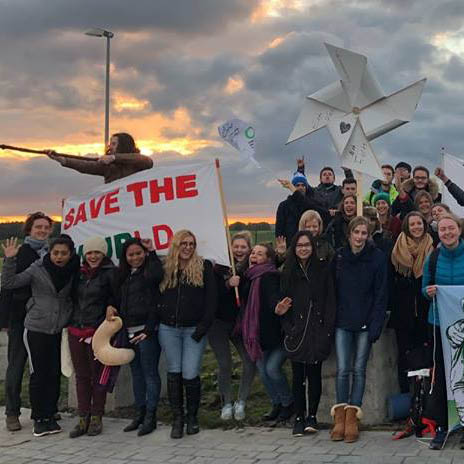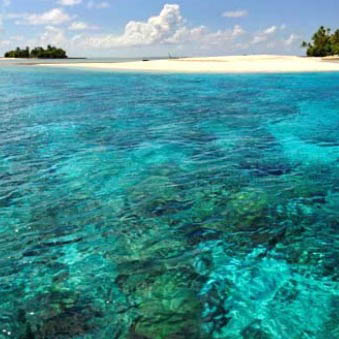Climate change is a social disaster
Conference of Parties (COP) is a yearly event that gathers the world’s leaders who decide upon climate policies. They choose who lives and who dies. This year, the event takes place in Bonn, Germany, although Fiji is the host.
However, young people don’t just want to wait for those old people to resolve the issues. Therefore, they have their own event: Conference of Youth (COY), an event for youth by youth, just before the COP,
by Piotr Działak, coordinating teacher at DNS
A known slogan calls youth the future. It is not a bad slogan but I have come up with a better one: “Youth is not our future; Youth is our NOW”. With these words or the other, the sentence represents one of COY’s main messages. We don’t want the older generations to care for us. We can look after ourselves, you just need to stop babysitting us, start listening and let us do.
A broad representation of the Global South is a big power of this year’s COY
It brings some new input, especially the presence of Island Nations like: Kiribati, Fiji, Solomon Islands, Marshall Islands… Threatened by flooding, they are in the lead of fight against the Climate Change, the fight for Climate Justice. Apart from the conferences like this, it is difficult to meet these folks, so I took every opportunity to talk to them. I was especially interested in the connection between the Climate Change and refugees…
As for now, climate refugees are not recognised by the international law. In most of the cases, it is very difficult to define if a person moved because of poverty, manmade destruction of environment or Climate Change: desertification has happened before, cyclones have happened before, droughts have happened before…
Except for one case: rising sea level and, as a consequence, irreversible flooding. Warmer climate means more glaciers melted. It also means warmer oceans and with raising temperature water expands. There is no other explanation than the Climate Change. Despite the evident, Ioane Teitiota from Kiribati was denied an asylum in New Zealand even though Kiribati lies mere two metres over the sea level and will be gone until the end of this century.
Talking with Islanders, I had to re-evaluate the whole discussion about the climate asylum
The turning point in my considerations comes from… COCONUTS and GRAVEYARDS. You see, virtually ALL of Oceania’s nations regard their homelands as a paradise. On Kiribati, there are no natural disasters, the weather is great but the sun is not scorching and no tropical diseases occur. You cannot go hungry, because you can always find seafood, fruits and different edible plants growing wild. It is for free and most of the people still know how to use all that.
Expert biologists that might have never read a book
But the biggest power is in a deep sense of COMMUNITY. Villagers belong to the place where they have lived for generations. They belong to other people that live there. Even the ancestors belong to the community – their graves are inside the village. Villagers know who to talk to if they have problems, there is a whole social structure to solve them. The events and traditions, although felt by individuals, they are COMMON stories. In fact, it is a community that experiences. With all the local versions of Olympic Games, Assumptions and All Saints, a village is much more than what it appears to be.
To have a grave washed away by the ocean is like losing a family member
And here comes an interesting part: seeking an asylum is an individual affair, while life is a common affair. And it makes sense to grant asylum individually to people coming from a war zone, where villagers are dispersed and communities already torn apart. But in cases like Kiribati, granting asylum to individuals means destruction of communities – adding another disaster.
Climate Change is a social disaster
Kiribati will be gone. We know that. They know that. That’s why they bought land on Fiji 2000 kilometres away. An island nation itself, Fiji is elevated high enough to adapt to the Climate Change. When the time comes and the fight against the Climate Change becomes futile, the whole nation will move to Fiji. In an imperfect world, could it be the best you can get? You cannot move graveyards but the community doesn’t have to be all lost when its members are still together.
It reminded me the history of people from Chagos Islands, who forcibly exiled from the paradise, died out of sadness.
And then I realised that I had known that all along but it took faces and names to put it all together.
Thank you COY.


Piotr Działak
Coordinating teacher at DNS · The Necessary Teacher Training College

Kiribati will be gone. We know that. They know that. That’s why they bought land on Fiji 2000 kilometres away. An island nation itself, Fiji is elevated high enough to adapt to the Climate Change.

thankyou learn more meta
Thank you!You should get a booking confirmation over email.Meanwhile, feel free to explore our blogThank you!You should get a confirmation over email.Meanwhile, feel free to explore our blog
Winter Concert · January 2025
We are looking for volunteers to help us organise a big music event at the end of January!
Course: The Cuban Literacy Campaign
The Cuban Literacy Campaign and the participation of women in the campaign significantly impacted the Cuban patriarchal culture at a crucial moment. In other words, though a male-led revolution did not give women the space to organise against patriarchy, rather by actively participating in the revolution, women helped change the nature of Cuban patriarchy today.




